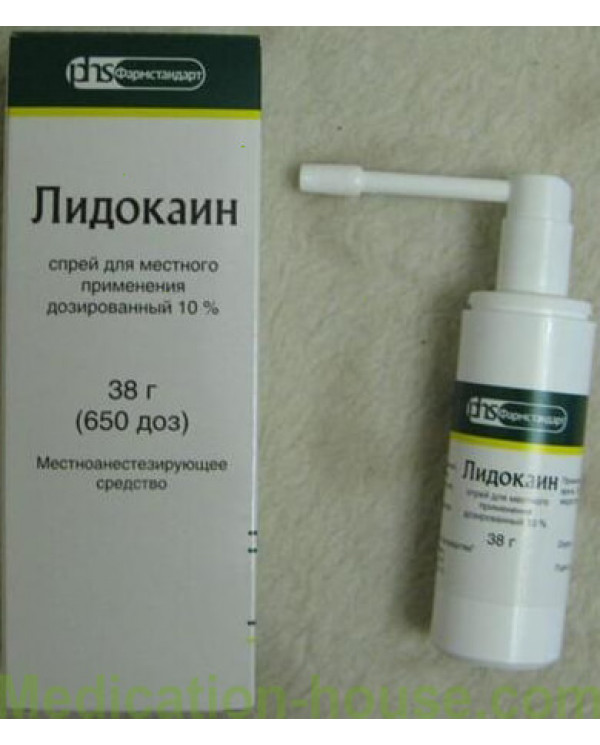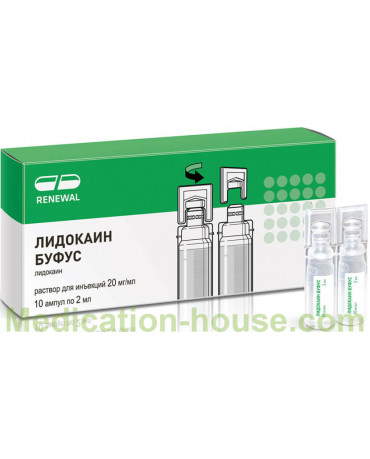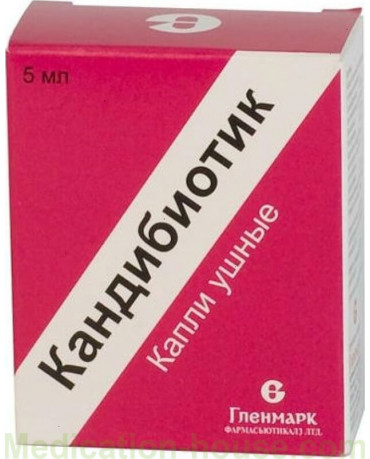Lidocaine user manual
To buy Lidocaine just add it to your shopping cart
pharmachologic effect
Lidocaine is a derivative of acetanilide, has antiarrhythmic properties, as well as membrane stabilizing activity. The drug blocks the generation and conduction of nerve impulses, thereby removing the sensitivity to pain. When reaching the trachea and larynx, lidocaine inhibits the reflex of coughing and swallowing, so there is a risk of aspiration and bronchopneumonia. In moderate therapeutic doses, anesthetic does not affect the frequency and strength of the contraction of the heart.
Lidocaine is absorbed differently on the mucous membranes. It depends on the place of application and quantity. In perfused organs, including the heart, liver, kidneys, lungs, the drug is well distributed, penetrates the fatty layer, the placenta, penetrating into the blood circulation of the fetus.
What is lidocaine spray used for?
The spray is indicated for use for local anesthesia of the mucous membranes in dental practice and during surgical operations in the oral cavity, namely:
Anesthesia of the gums for fixing the crown or bridge (when using only an elastic impression material);
Anesthesia for excision of superficial benign tumors of the oral mucosa;
Removal of mobile milk teeth and bone fragments;
Opening of superficial abscesses and suturing of the wounds of the mucous membranes;
Reduction (or suppression) of the increased pharyngeal reflex in preparation for the X-ray examination;
Instrumental or manual removal (excision) of the enlarged papilla of the tongue;
Frenulotomy (excision of the frenulum) and dissection of salivary gland cysts in children.
In obstetrics and gynecology, the drug is used if necessary to anesthetize:
The area of excision and treatment of rupture of the hymen or stitches for abscesses;
Crotch for treatment and / or episiotomy;
Operational field during surgical intervention on the vagina and cervix.
Lidocaine spray is also used in endoscopy, instrumental examinations and in the ENT practice for anesthesia, after which it is performed:
Rectoscopy and catheter replacement;
Washing of the sinuses;
Tonsillectomy, to reduce the pharyngeal reflex and anesthetize the injection site;
Electrocoagulation (in the treatment of nasal bleeding), septectomy and resection of nasal polyps;
Introduction through the mouth or nose of various probes (fractional food test, duodenal probe).
Opening of the peritonsillar abscess or puncture of the maxillary sinus as an additional anesthetic.
The spray is also prescribed for anesthesia of the mucous membranes and skin with minor surgical interventions.
Instructions for use
According to the instructions for use lidocaine spray must be sprayed on the mucous membranes. The dosage depends on how extensive the surface area to be anesthetized.
With a single spray, 4.8 mg of active ingredient is released. You should apply a minimum dose that provides the desired effect. As a rule, the expected action occurs after 1-3 sprays. More sprays are used in obstetrics - 15-20, with the maximum allowable dose of 40 sprays with a patient weight of 70 kg.
When performing dental procedures and surgeries in children, Lidocaine Spray is preferably applied with a cotton swab, which avoids fright when spraying the drug, as well as tingling sensations (a normal side effect).
Contraindications
Do not use the drug in such cases:
use for tonsillectomy and adenotomy in children under 8 years of age;
hypersensitivity to lidocaine and other components of the drug.
The drug should be used with caution in instrumental examinations (rectoscopy) in patients with hemorrhoidal bleeding, local infection in the area of application, epilepsy, bradycardia, cardiac conduction disorder, injury of the mucous membrane or skin in the area of application, severe somatic pathology, impaired liver function, severe shock, in young children, elderly patients, during pregnancy and lactation.
Side effects
Lidocaine spray can cause: burning sensation, allergic manifestations, low blood pressure, heart attack, depression, drowsiness, anxiety, loss of consciousness, cramps, paralysis of the respiratory tract, irritability.
In addition, we can not exclude the development of such undesirable effects during lidocaine therapy:
From the side of the heart and blood vessels: myocardial infarction, lowering blood pressure, bradycardia, cardiac arrest.
On the part of the central nervous system: depression, drowsiness, cramps, increased anxiety, irritability, loss of consciousness, respiratory paralysis.
Allergic reactions: bronchospasm, angioedema, anaphylactic shock.
Pregnancy and lactation
The results of controlled clinical trials in pregnant women are absent. If necessary, the use of local anesthesia and the absence of a safer treatment, lidocaine spray can be used during pregnancy. Lidocaine is excreted in breast milk, but after topical administration in usual therapeutic doses, the amount excreted in milk is too small to cause any harm to the infant.
Terms of sell
You can buy Lidocaine without a prescription.



